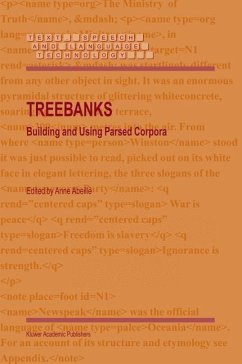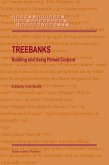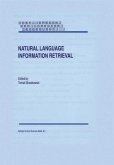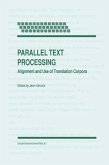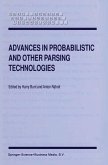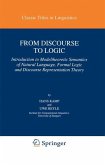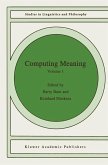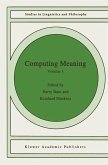Linguists and engineers in Natural Language Processing tend to use electronic corpora more and more. Most research has long been limited to raw (unannotated) texts or to tagged texts (annotated with parts of speech only), but these approaches suffer from a word by word perspective. A new line of research involves corpora with richer annotations such as clauses and major constituents, grammatical functions and dependency links. The first parsed corpora were the English Lancaster treebank and Penn Treebank. New ones have recently been developed for other languages.
This book:
provides a state of the art on work being done with parsed corpora;
gathers 21 papers on building and using parsed corpora raising many relevant questions;
deals with a variety of languages and a variety of corpora;
is for those working in linguistics, computational linguistics, natural language, syntax, and grammar.
Hinweis: Dieser Artikel kann nur an eine deutsche Lieferadresse ausgeliefert werden.
This book:
provides a state of the art on work being done with parsed corpora;
gathers 21 papers on building and using parsed corpora raising many relevant questions;
deals with a variety of languages and a variety of corpora;
is for those working in linguistics, computational linguistics, natural language, syntax, and grammar.
Hinweis: Dieser Artikel kann nur an eine deutsche Lieferadresse ausgeliefert werden.
From the reviews:
"Anne Abeillé draws together a collection of fifteen short pieces focused primarily on the issues that come up in creating treebanks, demonstrated across an impressive variety of languages, along with six chapters on how treebanks are used. ... For computational linguists working on automatic parsing, a pass through this book should be required ... . The reader ... will be rewarded with a clear sense of the challenge and the promise of systematically applying theoretically motivated linguistic representations to 'language in the large'." (Philip Resnik, Language, Vol. 83 (4), 2007)
"Anne Abeillé draws together a collection of fifteen short pieces focused primarily on the issues that come up in creating treebanks, demonstrated across an impressive variety of languages, along with six chapters on how treebanks are used. ... For computational linguists working on automatic parsing, a pass through this book should be required ... . The reader ... will be rewarded with a clear sense of the challenge and the promise of systematically applying theoretically motivated linguistic representations to 'language in the large'." (Philip Resnik, Language, Vol. 83 (4), 2007)

